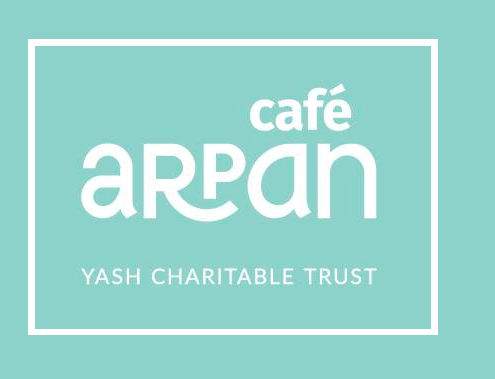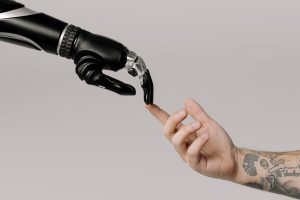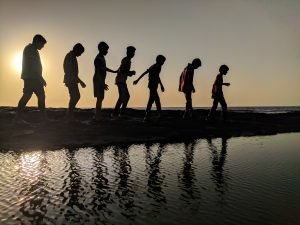Listen to Ashaita Mahajan, Trustee at Yash Charitable Trust, speak to us about Cafe Arpan, a cafe in Mumbai staffed and managed by people with intellectual and developmental #disabilities. Why did they start a cafe? How has it grown? All this and more awaits!
Interviewed by Yashasvini Rajeshwar (YR), Deputy Editor, Success & ABILITY
YR: Hello and welcome to the next video interview for Success & ABILITY. We have with us what promises to be a very exciting conversation. Yash Charitable Trust is a Mumbai-based organisation that aims to provide opportunities for adults with intellectual and developmental disabilities to live and work in the community of their choice with dignity and self-respect. One of the organisation’s key projects is Cafe Arpan, a cafe where food is created and served by persons with disability. We are here today to learn more about Café Arpan’s journey from Ashaita Mahajan (AM), a trustee at Yash Charitable Trust. Thank you so much for joining us, Ashaita.
AM: Thank you for having me, Yashasvini and Jincy.
YR: Let us cut to the chase. Why did you choose to launch a café as a means to achieve the Trust’s vision?
AM: That’s a great question and it has a very long answer. So I’m going to try and keep it as short as possible. So Café Arpan…the idea was conceived back in 2017. We came across a wonderful story online of a family based in the Philippines, who had started a cafe just so that their son, an adult with autism, would have a safe and supportive place to work. Yash Charitable Trust had already been working with persons with developmental and intellectual disabilities or PWIDDs and we had started a dabba service back in 2015, called Arpan Dabba Service. So we were already working with food, and we were just trying to figure out what comes next. How can we expand on what we’re currently doing?
When we started out, we had three individuals working with us at the dabba service. And within two years, we had grown to 13 individuals and the space that we were working out of was very small. And so we had to come up with a second idea/ second initiative/second programme. So when we heard about the story of Puzzle Cafe, we were very inspired and motivated. We did a little bit of research [and] we realised there’s nothing like this as such in Mumbai city, or even in India, being done and we decided we’re going to give it a shot. We did. We ran a fundraising campaign online in the month of August 2017. And within a few short months, we had raised sufficient funds to be able to start the cafe. The support that we received in terms of contributions really motivated us and gave us, you know… we were determined to set this place up and see how it goes. So fast forward to August 2018. We successfully launched Cafe Arpan as a means to expanding our vision that persons with these disabilities deserve the opportunities to live and work in the community of their choice with dignity and self-respect.
The one thing that was missing from the dabba service was actually the ability for our team members as we call them, to interact with their customers. So for us, adding that as a key element to their work environment was important. And we have seen in the last three and a half, almost four years now, of running Café Arpan, that it has been hugely successful with our customers. Very, very beneficial for our team members and I think a beacon of hope for the city of Mumbai.
YR: It sounds like an exciting place to be. I’m sure many of us who visit Bombay in the future will make sure to stop by. I’m sure that COVID story is a different story in itself. But I’m going to pivot slightly differently and ask you a question but maybe you haven’t answered as many times before. I understand that the cafe is staffed and managed by persons with disabilities. But can you tell us a little more about inclusion features for the customers? About the accessibility of the building, where are you located, do you have menus in braille for that matter?
AM: So when we first started, we had decided that we were going to keep everything organic, so we deliver the cafe from the ground up. Like I mentioned, we raised funds, sufficient funds to be able to set up the physical space and pay for labour, pay for interiors, those kinds of things. However, a lot of the people that joined us at that time – professionals in the field – whether it’s interior designers to other restaurant owners who provided their expertise… They advised us on what menu to have, what kind of kitchen to set up, the kind of layout to have. My own sister-in-law was the interior designer along with her partner. And so we had a lot of people come in and give us input. After we started. We had a lot of people come and also give us advice on what we were doing wrong and what we should change. Of course, you know, we picked what was going to work for us.
So as much as we want to say that it is all inclusive, we’re working on it. At the moment, we do not have a menu in Braille. But we are wheelchair accessible. We are on the ground floor. We are easily accessible…There is a bus stop right outside that is easily connected to a train station. We can be found easily on Google Maps. We are available for order on various platforms. When you mention inclusion for customers, we are also LGBTQIA friendly. We have a huge pride flag that very proudly flies outside our cafe. And members of this community actually have come up to me and said that we are probably the only one that is doing so in such a big… in such a big way. I’m guessing maybe they have smaller representation at other places. I don’t want to speak for others but I know that when we decided to have the pride flag put up it, took us a while to find a nice big one. I must admit it was not easy. But we had some help with that. And when we put it up we really didn’t think it was a big deal. Because we think that everyone, we’re all human beings, and you know, everyone should be included. And we’ve taken it a step further also to say that if you have a pet with you and if you’re walking your dog and you want to bring your dog or your cat in or any other pets for that matter, you’re most welcome to. We are pet friendly as well. We don’t serve pets because there’s a space constraint as well as a hygiene factor. But apart from that we always maintain that everyone and anyone is welcome at Café Arpan.
And, you know I have a fun story that… you know when we when we first opened…I don’t know if it’s a tradition but members of the Hijra community? I think that is the correct word. They came and they usually come and they beg for money outside, you know, when a new place has opened. And so we invited them in and we had them sit down, have some water and we asked them to be customers rather than go out and beg, you know, and I think that they were treated like that for the first time maybe. And it’s nice to know that since then, members of every community, people from all ages and all backgrounds can feel comfortable coming into the cafe Arpan because everyone will always be included.
YR: That’s such a welcoming environment, I think but also one of the things that struck me when we were talking is how much of iterative process a project like this is. How much you’re constantly looking to do that little bit better, that one step forward. So I imagine it’s many, many small, positive steps in a long, long road ahead. My next question to you is actually a little wider in scope [about] some of the other activities that the Trust undertakes. You spoke about the dabba service that was kind of the seed that grew and made you branch into Café Arpan. I also saw that you have an adult support group, I saw something about a music group… tell us a little bit more about inclusion as a strategy at the Trust and why you think it’s a strategy that ought to be adopted at a wider scale.
AM: YCP or Yash Charitable Trust stands on three pillars – Inclusion, Acceptance and Empowerment. These are the key pillars that we believe in and all our work, all our programmes are geared towards this. Our founder is Dr. Sushma Nagarkar. She is my aunt. She is also a special educator. She’s a psychologist. She has a PhD in autism. And she’s also a parent of a young adult with autism. Her name is Arti and she is my first cousin.
Growing up we were born a few days apart and so we grew up together and so, including Arti in every aspect of my life and our family’s life was, you know, it was almost taken for granted. We never saw her as somebody else or something else or anyone who needed to be hidden away. We always included Arti and accepted her for who she is. Sushma and Arti lived in the US for many years. And one of the things that was missing was Arti was not able to really engage in a meaningful way on an everyday basis. She used to attend a sheltered workshop over there and we find that though it works for some people, they’re also very exclusionary in nature. And we wanted to make sure that all the programmes that we run were inclusive because we have seen for ourselves the benefits that that these individuals have as a result of that inclusion.
So when Sushma and Arti moved back to India and they wanted to set up an organisation that would look at creating inclusive opportunities, creating supported employment opportunities, because one of the things that we realised was, you know, apart from not being included in society, in general, you know, just being able to, you know, go to a movie or, you know, get on a plane. These are just, I mean, there are examples. I’m not saying that this is a generalisation at all. I think things have changed. That’s something to look forward to. There’s a lot more acceptance, but the reality is in the job market, individuals with autism or other intellectual disabilities are at the bottom of the barrel. They are the most marginalised and the least likely to be able to find a suitable job [or] suitable employment for them in the open market. So that was one thing that was missing. That is also one thing that we felt that we needed to do a little differently. And so every programme that we run right now, whether it’s the dabba service, the cafe, we have a skill development centre, we have the Tarang Music Group, of course, which at the moment is on hiatus because of the pandemic. There hasn’t been time to practice so we’ve put that on hold. We’ve started an employment services wing as well. We want individuals with these disabilities to know that there are some people out there who are going to try and do their best to find employment for them. If not, then, provide counselling to provide therapies, anything that they find is going to be beneficial to them. We do not take on individuals whose parents come to us and say “please keep my son or daughter busy for the day or occupied for the day”. We believe in giving our team members, that’s what we call them, you know the right to self-determination. Anyone who joins us, we now put them through an interview process. They go through an internship process. They go through training. And all of this is, you know, in the hard skills but as well as the soft skills of just being able to manage and try and be as independent as possible. So simple things like being able to travel by yourself or at least communicate to the person who’s taking you, whether it be your own driver or whether it be an auto rickshaw driver, being able to buy a ticket, counting money. These are skills that we’re trying to incorporate into our programme at the skill development centre because these are day-to-day things that you know would be beneficial to them and make them more accountable and responsible. And these are all things that we’ve seen the team members are more than happy to learn, and we’ve seen them all grow and develop over the course of… depending on how many months or years they work with us.
YR: That brings me to the end of my questions for today, Ashaita. Thank you so much. Such exciting work that all of you have going at YCT, both at the café and beyond. More power to all of you and I hope that this is the beginning of many, many, many more stories to be told.
AM: Thank you. Thank you so much.








